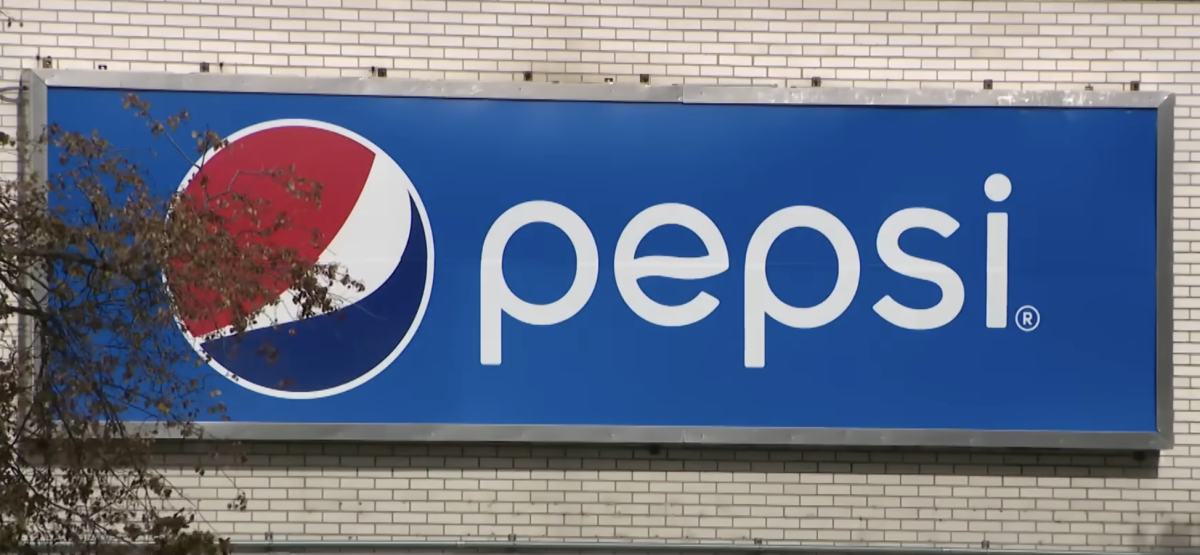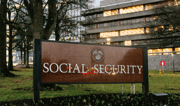
Nobody likes unpleasant surprises—especially when it comes to what's in your favorite drink. But that's exactly what happened with a recent nationwide recall, and if you're among the many Americans who carefully monitor sugar intake for health reasons, this one hits particularly close to home.
PepsiCo has issued a recall after discovering that thousands of bottles were mislabeled.
The problem isn’t what’s inside—the drink itself is fine. It’s what the label claims that’s causing concern.
The sweet and not-so-sweet of it
Here’s what happened: The outer cases are labeled as Lipton Green Tea Citrus, but the bottles inside are labeled as Lipton Diet Green Tea Mixed Berry.
This means anyone reading the individual bottle would think they’re drinking a zero-sugar beverage when they’re actually consuming 25 grams of sugar per bottle.
For the millions of Americans managing diabetes, following doctors’ orders about sugar intake, or simply trying to make informed dietary choices, this kind of mix-up represents more than just an inconvenience—it could genuinely impact their health management plan.
"Both situations posed a particular risk to soda consumers who need to monitor their blood sugar"
The US Food and Drug Administration (FDA) classified it as a Class II recall, meaning consuming the recalled product "may cause temporary or medically reversible adverse health consequences."
While that might sound reassuring, it's worth understanding that for someone carefully managing blood sugar levels, an unexpected 25 grams of sugar could potentially cause concerning spikes.
Also read: FDA issues new recall alert—here’s what to check in your kitchen
A troubling pattern emerges
This isn't an isolated incident for PepsiCo. In 2024, labeling errors accounted for almost half of the food recalls in the US, and PepsiCo has found itself at the center of several such mix-ups recently.
Just earlier this year, the company announced a voluntary recall for 12-pack cans of Mug in March 2024 because what was actually in those cans was Mug Zero Sugar, and PepsiCo had to recall its Schweppes Ginger Ale in a nearly identical mix-up two weeks before recalling Mug.
In the Schweppes scenario, 5,592 cans, packed in 24-count cases, were labeled as Zero Sugar Ginger Ale but contained the full-sugar version.
Understanding FDA Recall Classifications
Class I: Most serious - could cause severe health problems or death
Class II: Moderate risk - may cause temporary health problems
Class III: Least serious - unlikely to cause health problems but violates FDA regulations
The pattern is particularly concerning because both situations posed a particular risk to soda consumers who need to monitor their blood sugar.
For a company that produces beverages consumed by millions of Americans daily, these repeated labeling errors suggest deeper quality control issues that need addressing.
Also read: Salmonella outbreak prompts expanded frozen vegetable recall
What you need to know about this recall
The bottles were sold in shelf-stable 12-pack cases at stores in Arizona, Colorado, New Mexico, Utah, Texas, Kansas, Nebraska, Oklahoma, Wyoming, and South Dakota.
If you live in one of these states and have purchased Lipton Green Tea Citrus recently, here's what to look for.
Both the individual bottle and cases can be identified by the sell-by date of December 1, 2025, and the code HHMM DW 08035 printed on the label.
The telltale sign is if your individual bottles are labeled as "Lipton Diet Green Tea Mixed Berry" while the case says "Lipton Green Tea Citrus."
It's worth noting that ready-to-drink Lipton beverages are made by a joint venture between Unilever and PepsiCo—the Pepsi Lipton Tea Partnership (PLTP)—which has been producing these popular drinks since 1991.
Source: Facebook / Iwaspoisoned.com.
Also read:Massive recall: 58 million pounds of corn dogs pulled from freezers nationwide
Your action plan
If you are someone who monitors sugar intake for health reasons, the Lipton Green Tea Citrus may not be safe for you to consume.
Instead, you should throw the product away or return it to the place of purchase for a refund or replacement.
Even if you don't strictly monitor sugar intake, you have every right to expect accurate labeling on products you purchase.
You are also eligible for a refund or replacement at the place of purchase if you prefer to return the product.
The good news is that recalls like this one demonstrate the system working as it should.
Companies are required to report these issues, the FDA investigates and classifies the risk level, and consumers are notified so they can make informed decisions.
Protecting yourself going forward
While we can't prevent manufacturing errors from occurring, we can take steps to protect ourselves:
- Always check both outer packaging and individual product labels, especially if you have dietary restrictions
- Keep receipts for products you regularly consume, making returns easier if recalls occur
- Sign up for FDA recall alerts to stay informed about issues affecting products you use
- When in doubt, contact the manufacturer directly with questions about labeling discrepancies
Essential steps for recall-affected products
- Check your pantry for bottles with sell-by date Dec. 1, 2025 and code HHMM DW 08035
- Look for mismatch between case label (Green Tea Citrus) and bottle label (Diet Mixed Berry)
- Return products to store for refund if you monitor sugar intake for health reasons
- Contact your healthcare provider if you consumed the product and experienced unexpected blood sugar changes
- Consider signing up for FDA recall alerts to stay informed about future issues
Also read:Popular Costco drink faces recall after bottle safety concerns—check if yours is affected
The bigger picture
This recall serves as a reminder that even trusted brands can experience quality control issues.
For those of us who’ve spent decades learning to read labels carefully—whether for health reasons, dietary preferences, or simply wanting to know what we’re consuming—these mix-ups can feel particularly frustrating.
Did you know?
Did you know?
The FDA receives reports of about 600-800 food recalls each year, but many go unnoticed by consumers because they're resolved quickly or affect products with limited distribution.
The silver lining is that our food safety system is designed to catch and address these problems.
Companies face significant financial and reputational consequences for recalls, which incentivizes them to maintain high standards.
And when problems do occur, we have mechanisms in place to protect consumers.
What This Means For You
If you've been affected by this recall, don't hesitate to reach out to PepsiCo's customer service line or return the product to your retailer. You paid for accurate labeling, and you deserve to get what you expected.
Read next:
- FDA issues urgent recall of mislabeled pain medication over life-threatening risks
- Kroger issues recall on 6 frozen foods in 17 States—check your freezer now!
- Cheese lovers beware! FDA recall issued after listeria risk detected
Have you encountered any labeling mix-ups with your favorite products recently? Share your experiences in the comments below—your story might help fellow readers stay more vigilant about checking their purchases.
Original Article
https://www.allrecipes.com/lipton-tea-recall-october-2025-11824704
The Biggest Recalls In PepsiCo History - Mashed
Cited text: In 2024, labeling errors accounted for almost half of the food recalls in the U.S. PepsiCo's Mug Root Beer was part of that statistic.
Excerpt: In 2024, labeling errors accounted for almost half of the food recalls in the U.S.
https://www.mashed.com/1830551/biggest-recalls-pepsico-history/
The Biggest Recalls In PepsiCo History - Mashed
Cited text: The company announced a voluntary recall for 12-pack cans of Mug in March 2024 because what was actually in those cans was Mug Zero Sugar.
Excerpt: the company announced a voluntary recall for 12-pack cans of Mug in March 2024 because what was actually in those cans was Mug Zero Sugar, and PepsiCo had to recall its Schweppes Ginger Ale in a nearly identical mixup two weeks before…
https://www.mashed.com/1830551/biggest-recalls-pepsico-history/
The Biggest Recalls In PepsiCo History - Mashed
Cited text: Adding insult to injury was the fact that PepsiCo had to recall its Schweppes Ginger Ale in a nearly identical mixup two weeks before recalling Mug. I...
Excerpt: the company announced a voluntary recall for 12-pack cans of Mug in March 2024 because what was actually in those cans was Mug Zero Sugar, and PepsiCo had to recall its Schweppes Ginger Ale in a nearly identical mixup two weeks before…
https://www.mashed.com/1830551/biggest-recalls-pepsico-history/
The Biggest Recalls In PepsiCo History - Mashed
Cited text: Both situations posed a particular risk to soda consumers who need to monitor their blood sugar.
Excerpt: both situations posed a particular risk to soda consumers who need to monitor their blood sugar
https://www.mashed.com/1830551/biggest-recalls-pepsico-history/
Lipton - Wikipedia
Cited text: In 1991, Unilever created a joint venture with PepsiCo, the Pepsi Lipton Tea Partnership (PLTP), for the marketing of ready to drink teas in North Ame...
Excerpt: ready-to-drink Lipton beverages are made by a joint venture between Unilever and PepsiCo, the Pepsi Lipton Tea Partnership (PLTP)
https://en.wikipedia.org/wiki/Lipton
Lipton - Wikipedia
Cited text: Lipton Iced Tea or Lipton Ice Tea a ready to drink tea brand made and distributed by the joint ventures between Unilever and PepsiCo.
Excerpt: ready-to-drink Lipton beverages are made by a joint venture between Unilever and PepsiCo, the Pepsi Lipton Tea Partnership (PLTP)
https://en.wikipedia.org/wiki/Lipton






